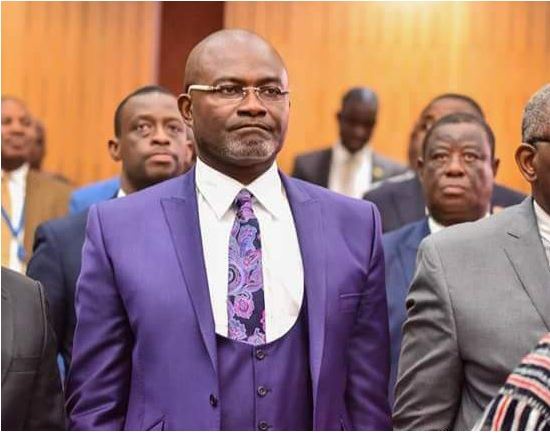
The Prosecution in the Kennedy Agyapong case on Tuesday played two audio CDs alleged to contain statements made by Kennedy Agyepong to “declare war” as part of their evidence before the Accra Circuit Court hearing the case.
The two CDs, which had already been tendered in evidence by the prosecution, were presented to the court by Assistant Superintendent of Police (ASP) Jerry John Boye of the Police Criminal Investigative Department.
ASP Boye, who played the CDs on a laptop computer for the court to take judicial notice of the statement, said the police got the first CD from Oman Fm while the other CD was from their own source.
Kennedy Agyapong has been charged for provocation of riot and offensive conduct conducive to breaches of the peace.
He has pleaded not guilty to the charges and he is on self recognizance bail.
Mr Ayikoi Otoo, Counsel for Kennedy Agyapong responding to the prosecution’s presentation said the defence would make an oral submission of no case for his client since the process in the Circuit Court allows for that.
He said section 174 of Act 30 allows the defence to file a submission of no case and ensure that rights of the accused are protected.
He said the prosecution cannot arrogate to themselves who has the right to file for submission of no case since “we are bound by the laws of Ghana including the constitution.”
Mr Otoo said the prosecution has not been able to prove that the demands of the accused were inconsistent with the constitution.
However, Mr Anthony Rexford Wiredu, Chief State Attorney said section 174 of the Criminal Procedure Code Act 30, cited by the defence was wrong, since the Act only gives the court and not the defence the right to decide whether to make a submission of no case.
He said to ensure fair trial for both the prosecution and the defence, it would be proper for the parties to allow the case to travel its normal course until judgment.
He said when a submission of no case is granted by the Circuit Court, no appeal can be made against it unlike the magistrate and high Courts, where appeals can be made and thus would not end the case prematurely.
Mr Ebenezer Osei Darko, the trial judge however asked the defence to make a formal submission of no case to the court.
He said the formal submission of the matter would also allow the prosecution to respond to the defence application. The court subsequently adjourned the case to May 22, 2013.
The accused was arrested on Monday, April 16, 2012 after being invited by the Police CID over statements he allegedly made the previous Friday, April 13,2012 on his Accra-based radio station, Oman FM.
He was alleged to have “declared war” and vowed to lynch any fake security operative, following the alleged physical attack on Ms Ursula Owusu, NPP’s Ablekuma South parliamentary aspirant at the time, and Mr Abu Jinapor, an aide to the NPP flagbearer, Nana Addo Dankwa Akufo-Addo, at Tarzan, a registration centre at Odododiodoo in Accra.
The accused reportedly said he would organise supporters of the NPP to defend themselves because the police had failed to protect them.
On Wednesday, April 18, the Adjabeng Magistrates’ Court in Accra declined jurisdiction in the case of treason, felony and attempted genocide brought against the accused, saying such crimes should be tried by the High Court.
Ms Patricia Quansah, Presiding over the court, said in a ruling after prosecution had asked for the remand of the accused, that such a case was heard by three high court judges.
She said the Chief Justice on June 17, 2008, released a circular to all judges stating that cases such as treason, murder, narcotics and rape, were to be referred to the Chief Justice, who would in turn refer them to the court.
Ms Quansah asked the prosecution, also led by Mr Wiredu, to refer the matter to the Chief Justice to determine which court should hear the case.